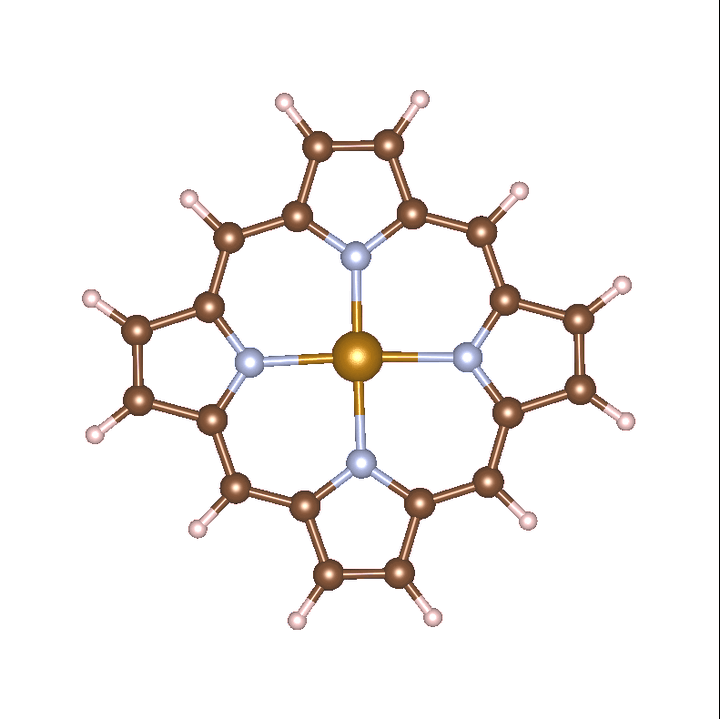2D Materials

Scientific Challenge
Two-dimensional (2D) materials provide a powerful platform for engineering electronic and spin-dependent phenomena at reduced dimensionality, making them attractive for applications in quantum technologies, spintronics, sensing, and energy conversion. Their properties are highly tunable through defects, dopants, strain, and interfacial coupling, offering opportunities to design materials with targeted functionality.
However, realizing functional devices based on 2D systems remains challenging. Key limitations include spin decoherence, instability of spin-polarized states, inefficient charge transport, and poor interfacial control. Understanding how atomic-scale modifications and hybrid interfaces govern these effects is essential for translating 2D materials from idealized models to realistic device architectures.
Our Approach
We focus on 2D materials (MXenes), monolayers (transition metal dichalcogenides) and single magnetic molecules (porphyrins), where controlled perturbations enable predictive tuning of electronic, magnetic, and catalytic properties.
Our approach combines DFT and MC with systematic materials design strategies to:
- Investigate how dopants, defects, and adsorbates modify electronic structure and spin polarization
- Study interfacial coupling between 2D materials and molecular or metallic species to enhance spin transmission and stability
- Link atomic-scale modifications to device-relevant performance metrics, including spin coherence, charge transport, and catalytic activity
Within this framework, spintronic, quantum, and catalytic functionalities are treated as complementary outcomes of electronic structure control in selected 2D material systems.
Key Insights & Achievements
- Explained experimental electrochromic battery performance through DFT calculations, identifying Jahn-Teller distortion in WO₃·H₂O as the structural origin of enhanced optical modulation and capacity in collaboration with AKS group
- Demonstrated that 2D organometallic molecules, such as metalloporphyrins, significantly enhance spin transmission and optical properties
- Established design principles for TMDCs, addressing key challenges related to coherence and stability
- For MXenes, showed that Zr-doped Ti₃C₂ and Ti₃CN exhibit superior catalytic performance for hydrogen evolution reactions, achieving |ΔGₕ| ≈ 0.1 eV and outperforming pristine Ti₃C₂
- Revealed how controlled chemical modifications in 2D systems can simultaneously optimize electronic, magnetic, and catalytic responses
Collectively, these results establish a mechanism-driven framework for engineering 2D materials, where spintronic, quantum, and catalytic functionalities emerge from controlled atomic-scale modifications rather than trial-and-error synthesis.